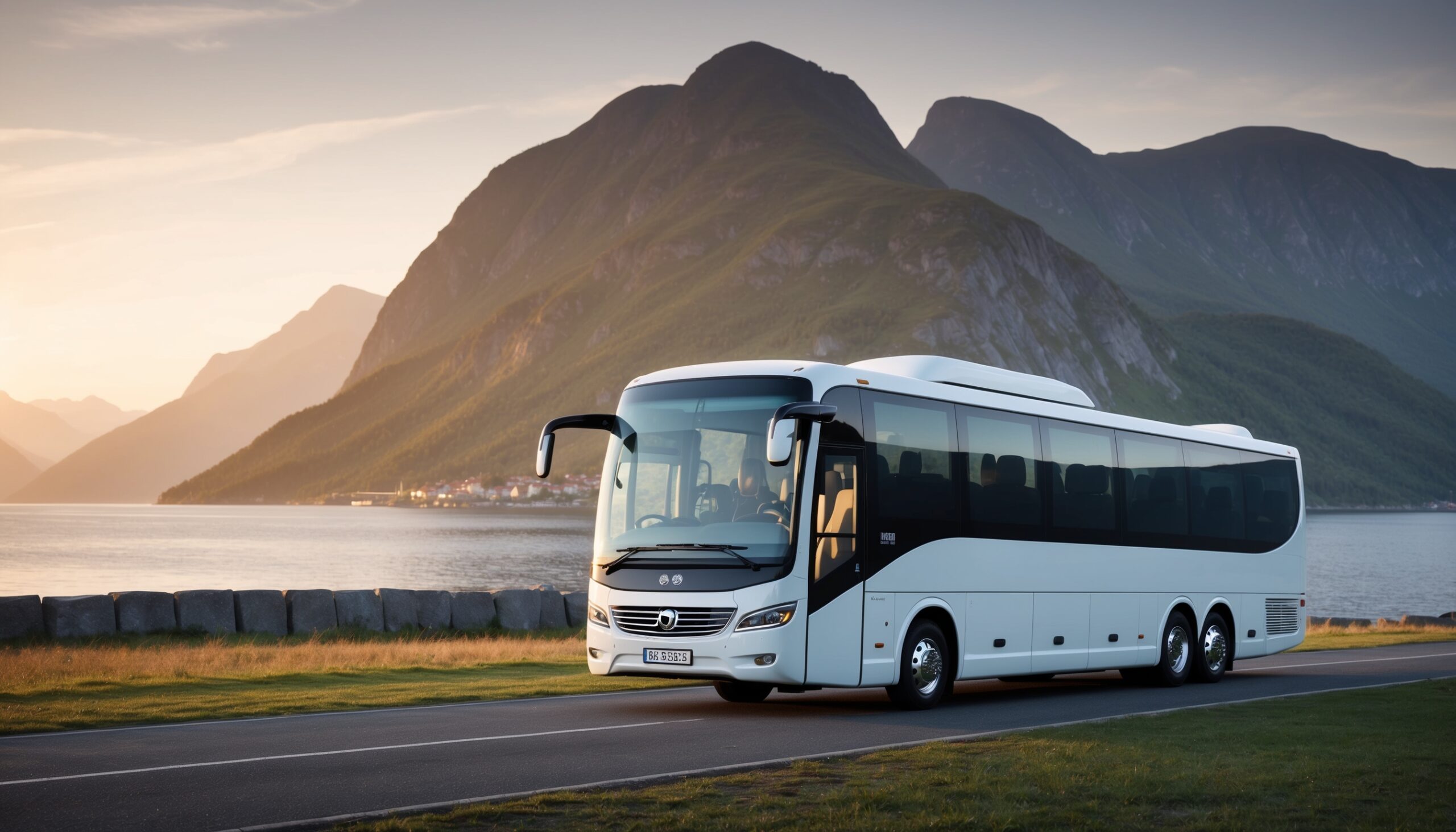Norway Discovers Its Chinese-Made Buses Can Be Remotely Turned Off By The Manufacturer
In a shocking revelation that has sent ripples through the automotive and public transportation sectors, Norway has found itself at the center of a technological controversy. The nation’s fleet of buses, primarily sourced from a Chinese manufacturer, has been discovered to have the capability of being remotely turned off by the manufacturer itself. This news has sparked debates about security, control, and the implications of modern technology in our daily lives. For car enthusiasts and industry insiders alike, this situation raises intriguing questions about the future of automotive technology and ownership.
The Context of Norway’s Bus Fleet
Norway has long been a pioneer in adopting sustainable transportation solutions, particularly in the realm of electric buses. With a commitment to reducing emissions and promoting green energy, the country invested heavily in electric public transport. Among the key players in this transition were several Chinese manufacturers, who offered competitive pricing and advanced technological features. However, the recent discovery has put a spotlight on the complexities of relying on foreign manufacturers in critical public service areas.
What Happened?
The situation unfolded when a routine inspection of the buses revealed that the manufacturer had the ability to remotely disable them. This capability was initially marketed as a feature for maintenance and security. However, the implications of such control have raised alarm bells across various sectors. Imagine a scenario where the manufacturer could turn off a bus mid-route or, worse yet, during a time of emergency. Such a scenario is not just a theoretical concern; it’s a potential reality that could jeopardize passenger safety.
The Technology Behind Remote Access
At the heart of this issue lies the advanced technology that powers modern electric buses. Many of these vehicles are equipped with sophisticated telematics systems, designed to monitor performance, track location, and report on various operational metrics. While these systems are essential for efficient fleet management, they also come with vulnerabilities and ethical questions related to data privacy and control.
Also Read: DHS Secretary Kristi Noem Tried To Buy 737s From Bankrupt Spirit Airlines That It Didn't Own And Also Didn't Have Engines
- Telematics Systems: These systems allow manufacturers to gather real-time data on bus performance, battery life, and maintenance needs.
- Remote Control Features: Intended for troubleshooting and updates, these features can also pose risks if exploited.
- Data Security: The more connected a vehicle is, the more susceptible it may be to hacking or unauthorized access.
Public Reaction and Concerns
Unsurprisingly, the discovery has sparked a wave of public concern. Passengers, drivers, and transportation officials are questioning the safety and reliability of the buses. Social media is abuzz with discussions about the ethical implications of allowing a manufacturer to have such control over public transport vehicles. Many fear that this level of control could be used for nefarious purposes, or at the very least, could lead to disruptions in service.
The Manufacturer’s Response
In light of the backlash, the Chinese manufacturer has issued a statement defending its technology. They emphasize that the remote control feature was designed solely for maintenance and not for any malicious intent. The company insists that safety protocols are in place to prevent unauthorized access and that they prioritize the well-being of passengers. However, assurances from the manufacturer have done little to quell the rising tide of skepticism.
Also Read: DHS Secretary Kristi Noem Tried To Buy 737s From Bankrupt Spirit Airlines That It Didn't Own And Also Didn't Have Engines
Legal and Regulatory Implications
This situation raises significant legal and regulatory questions. Norway’s government may need to revisit contracts with foreign manufacturers and consider implementing stricter regulations regarding remote control capabilities. As public transport systems become increasingly reliant on technology, the need for robust legislation to protect consumers and ensure safety has never been more pressing.
Moreover, this incident could inspire other countries to scrutinize their own public transport systems. If Norway, known for its stringent safety standards, is facing such issues, what might be happening elsewhere?
The Future of Public Transportation Technology
As we look ahead, the implications of this incident could shape the future of public transportation technology. Here are a few potential outcomes:
- Increased Regulation: Governments may impose stricter regulations on telematics and remote access capabilities for public transport vehicles.
- Shift Towards Local Manufacturing: Countries may prioritize local manufacturers to ensure greater control over public transport systems.
- Enhanced Cybersecurity Measures: As connectivity increases, so does the need for robust cybersecurity protocols to protect against unauthorized access.
- Public Awareness: Passengers may become more informed about the technologies used in public transport and the implications of connectivity.
The Role of Electric Buses in a Sustainable Future
Despite the controversy, it’s essential to remember that electric buses play a crucial role in reducing urban emissions and promoting a sustainable future. Norway’s commitment to electric public transport is commendable, and the technology that powers these buses can lead to significant environmental benefits if managed correctly.
As car enthusiasts, we should recognize the dual-edged nature of technology. On one hand, it has the potential to revolutionize the automotive industry, making vehicles more efficient and sustainable. On the other hand, it introduces complexities that need to be carefully navigated to ensure safety and security.
What Can We Learn?
This incident serves as a wake-up call for all stakeholders in the automotive industry. Here are some key takeaways:
- Transparency is Key: Manufacturers should be transparent about the capabilities and limitations of their technology.
- Consumer Education: It’s vital for consumers to understand the technology that powers their vehicles and the potential risks involved.
- Collaboration Between Stakeholders: Governments, manufacturers, and consumers need to work together to create a safe and efficient public transport system.
Final Thoughts
The discovery that Norway’s Chinese-made buses can be remotely turned off by the manufacturer raises important questions about technology, control, and the future of public transportation. As we navigate these challenges, it’s crucial to balance innovation with safety and accountability. For enthusiasts and industry experts following this story, it’s a reminder of the importance of vigilance in our increasingly connected world.
At Torque Feed, we’ll continue to keep an eye on developments in the automotive sector, especially as technology evolves and shapes the way we think about transportation. The balance between innovation and security will undoubtedly be a hot topic for years to come.













